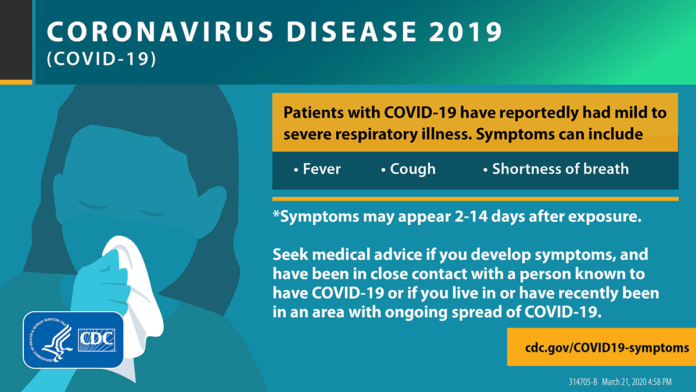Am I Having Allergies or Do I Have COVID-19?
DESOTO – Your car has turned a different color because it is sitting under a tree, you know this headache is related to what is in the air and the time of year. Now however you have an extra problem, you aren’t sure if it is the same allergies you have had in years past or novel coronavirus (COVID-19).
With allergies, normally you won’t run a fever. However, you may have a massive amount of nasal symptoms like a runny nose and congestion.
“I have suffered allergies for many years,” said Lancaster resident Andrea Pylant. “Some years are worse than others because I am very sensitive to the pollen. Now I am much more aware of the congestion I am feeling and the stuffy nose, runny eyes versus having a fever and cough.”
According to Family allergy some allergy and coronavirus symptoms can be the same with a few minor differences.
The Center for Disease Control has reported COVID-19 symptoms can range from mild to severe, including death. Symptoms can appear from two to 14 days after exposure and include fever, cough and shortness of breath. Other symptoms could include fatigue and body ache. The CDC has also said COVID-19 is spread by coughing, sneezing and close personal contact.
On the other hand, allergies can be mild to severe. During allergy season symptoms might include sneezing, runny or stuffy nose, watery and itchy eyes, itchy sinuses, throat or ear canals, ear congestion and postnasal drainage.
The other symptoms – rarer are headache, shortness of breath, wheezing and coughing. This is where the comparison with COVID-19 lies. However, the CDC reminds us that with allergies this is a “response in the immune system and are not contagious.” There are also medicines that easily treat allergies.
Webmd adds it is a good idea for allergy sufferers to watch out for allergy symptoms that are different than in the past. It is also noted if you have a fever check with your doctor just to be sure.
“I am more aware of my allergies and health this year with COVID-19, more aware of my body this spring,” concluded Pylant. “I am more aware of what feels normal for my body, so I know when there is a problem and I need to be concerned.”











